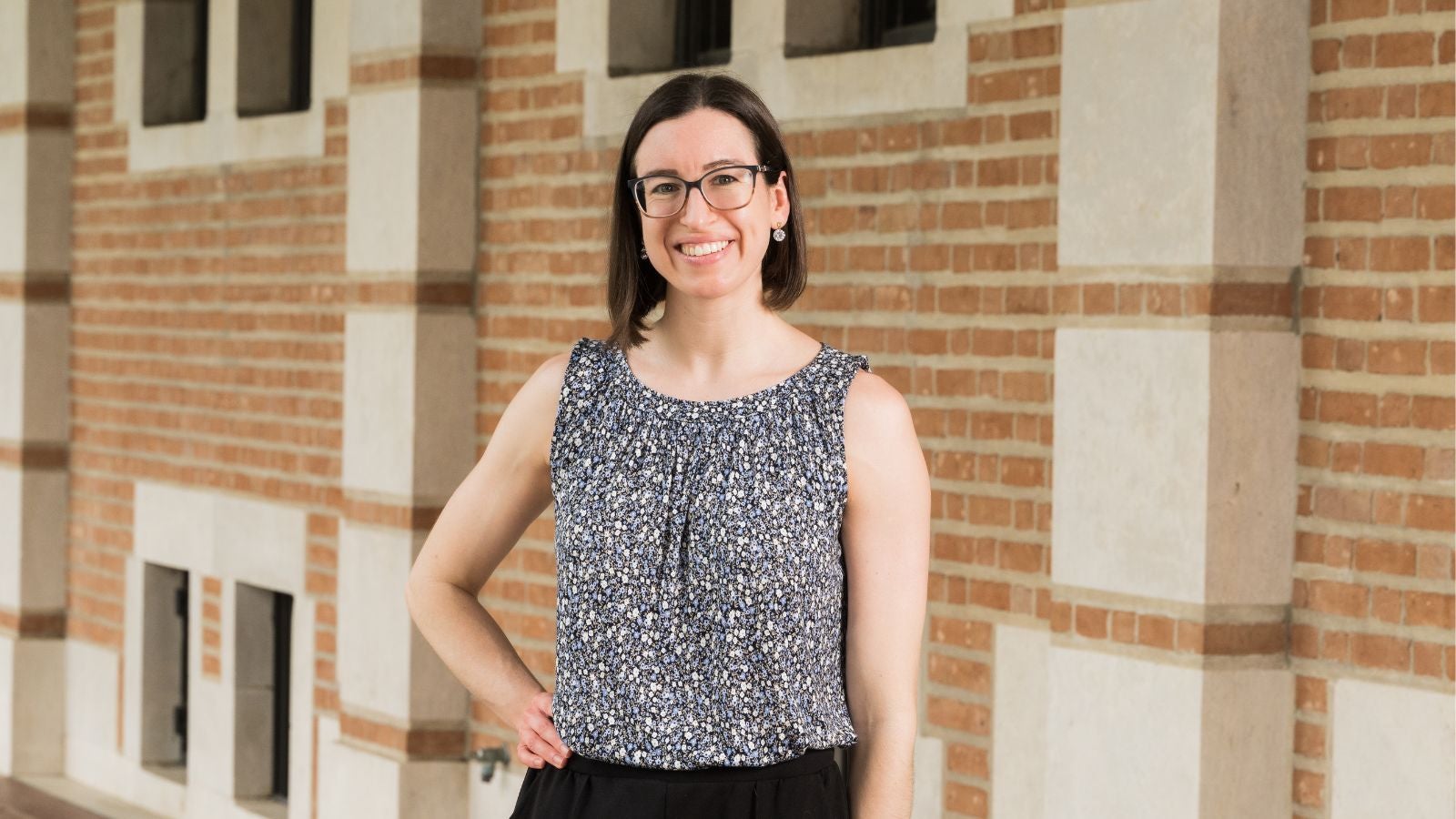Rebecca Schreib was promoted to Associate Teaching Professor of Computer Science, effective July 1st. She also acts as Director of Undergraduate Studies for the Computer Science Department.
Schreib earned her BS, MS, and PhD in computer science (CS) from Rice University. Her research focus began in computer systems, but shifted to education once she realized her passion for teaching. “I think it was a lot more enjoyable for me to see the concrete impact on people of the tools I was building,” she said.
And that impact has indeed been recognized; Schreib was awarded twice for her exemplary teaching in 2023, taking home both the Nicholas Salgo Outstanding Teaching Award and Phi Beta Kappa’s Sophia Meyer Farb Prize for Teaching.
Chris Jermaine, Chair of the Department of Computer Science, was not surprised by Schreib’s double honor. "The most singular characteristic of Rebecca's teaching is her dedication,” he said at the time. “I'm not sure anyone on campus puts in more effort, and her students revere her for it."
Starting with COMP 215, Schreib rebuilt several courses from the ground up, implementing a flipped curriculum where classroom time is focused more on practical experience with instructor feedback than lecture. She also recently developed a new course, COMP 312, designed to help students be more informed users of programming languages.
“It's been exciting to help oversee and roll out the curriculum revisions to the CS program as a part of my work as director of undergraduate studies,” she said.
As of this writing, Schreib has built seven computer science educational tools, all of which have been used in Rice CS courses. The latest one, called MemStep, combines her interest in computer systems with her love of teaching.
“I’ve worked on a variety of projects, but building educational tools is honestly the research I enjoy the most. I like the aspect of thinking about something hard for my students to learn, and thinking about a way where I can make it simultaneously easier and more enjoyable for them to learn, in a scalable way,” Schreib said.
As an Assistant Teaching Professor, she has taught CS courses ranging from the 100 to the 600 level and works with a small group of undergraduate students on various research projects. Her new role will be largely the same, with a greater expectation of leadership.
“I think where my new role differs from my current one is that it has greater expectations in terms of service and leadership,” she explained.
And Schreib has already stepped into more leadership roles. In addition to serving as Director of Undergraduate Studies for the Computer Science Department, she mentors students through the summer undergraduate research fellowship (SURF) program. She is also a reviewer for the Special Interest Group for Computer Science Education (SIGCSE) Technical Symposium.
Schreib presented her work at the 30th ACM SIGCSE Conference on Innovation and Technology in Computer Science Education (ITiCSE) this summer, where she introduced MemStep‑GC—an extension of the original MemStep program designed to help students learn and visualize garbage collection algorithms such as reference counting, mark‑sweep, and mark‑compact.
She plans to continue her work finding new ways to make computer science more engaging for students to learn. Building new educational tools for students, an area of research combining her interest in large computer systems and her experience teaching, will be key to that work. Tools to help students peer-review code and understand algorithmic efficiency concepts like big-O notation are in the works, and Schreib hopes to deploy them in the coming semesters.
When asked why she chose this area of research, Schreib had a simple answer. “I think at the end of the day, it just comes down to the fact that education is the part of my job that I’m the most passionate about,” she said. “I like computer science a lot; I LOVE teaching.”

